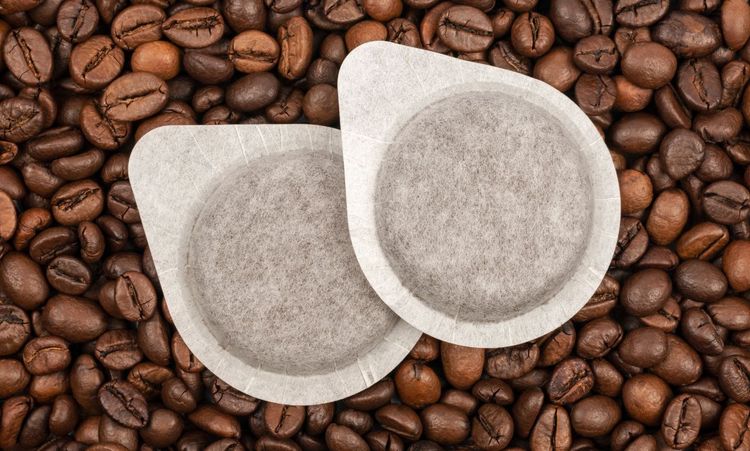Food isn’t just about flavor—it fuels your body. The right balance of protein, carbs, and fats keeps you healthy and energized. Understanding how these macronutrients work can make eating simpler and smarter.
Think about your body as a car. You wouldn’t pour diesel into a gasoline engine, right? The same principle applies to your diet. Each macronutrient—protein, carbohydrate, and fat—has a specific job. When combined correctly, they support everything from muscle growth to brain function.
In this article, we’ll explore what macronutrients are, how they differ from micronutrients, and why they matter for your daily health. Let’s unpack what to know about protein, carbs, and fats and how to balance them in your diet.
What Are Macronutrients?
Macronutrients are the nutrients your body needs in large amounts. They provide the energy required for movement, growth, and repair. Unlike micronutrients—vitamins and minerals—macronutrients directly fuel your body’s metabolism.
Every gram of protein and carbohydrate gives you about four calories, while fats provide nine. This difference explains why fat-dense foods pack more calories even in small portions. Still, that doesn’t make fat the enemy. Your body depends on all three macronutrients.
Together, these nutrients regulate blood sugar, maintain muscle tissue, and protect your organs. If one is missing, your body struggles to perform at its best. So, balance is the key.
Ever felt exhausted after skipping meals or going on an extreme diet? That’s your body signaling a lack of proper fuel. Macronutrients are essential—your body simply can’t function without them.
The Difference Between Macro and Micronutrients
Macronutrients and micronutrients work as a team, but they serve different purposes.
Macronutrients are your body’s main energy source. They give you calories, which power your heart, muscles, and brain. On the other hand, micronutrients—like vitamin C, iron, and calcium—don’t provide energy. Instead, they help your body use the energy efficiently.
Think of macronutrients as the main ingredients in a meal, while micronutrients are the spices that enhance flavor. You need both to stay healthy.
For example, you might consume enough protein, but without vitamin B6, your body struggles to process it effectively. Similarly, you could eat carbs, but without magnesium, your energy metabolism slows down.
That’s why a varied diet—rich in whole grains, fruits, vegetables, lean protein, and healthy fats—matters more than any single supplement.
Macronutrients Come in Only Three Categories
All macronutrients fall into one of three categories: carbohydrates, protein, and fats. Each one plays a unique role in your body’s functions. Let’s explore how they differ and why all three are vital for your health.
Skipping one of them can create imbalances. Low-carb diets might reduce energy. Low-fat diets can disrupt hormones. And low-protein diets hinder muscle recovery.
Understanding what each macronutrient does will help you plan meals that support your goals—whether it’s losing weight, gaining strength, or simply maintaining energy throughout the day.
Carbohydrates
Carbohydrates are your body’s preferred source of energy. They break down into glucose, which fuels your brain and muscles.
When you eat bread, rice, fruit, or vegetables, your body converts the carbs into glucose. That glucose then travels through your bloodstream to supply cells with energy.
However, not all carbs are created equal. Complex carbohydrates, such as whole grains and legumes, release energy slowly. They keep you fuller longer and stabilize blood sugar. Simple carbohydrates, like sugar and white flour, cause rapid spikes and crashes.
You’ve probably felt that post-sugar slump after eating sweets. That’s your body’s reaction to unstable glucose levels. Over time, consuming too many refined carbs may lead to insulin resistance, which increases the risk of diabetes.
Instead of cutting carbs completely, focus on quality. Choose whole foods—brown rice, oats, and sweet potatoes. These provide fiber, vitamins, and minerals that help digestion and overall health.
If you’re active, carbs become even more important. Athletes and fitness enthusiasts rely on them to restore glycogen after workouts. Without enough carbs, performance and recovery suffer.
Protein
Protein is the building block of life. It repairs tissues, builds muscle, and supports enzymes and hormones. Every cell in your body contains protein.
When you eat meat, fish, eggs, tofu, or beans, your body breaks the protein into amino acids. These amino acids then rebuild and maintain muscles, skin, and organs.
But here’s the catch: your body can’t store protein like it stores fat or carbs. That means you need a steady daily intake. If you skip protein-rich meals, your body starts breaking down muscle to get what it needs.
Different proteins offer different amino acid profiles. Animal proteins, such as chicken or beef, are complete—they contain all essential amino acids. Plant proteins, like lentils or quinoa, may require mixing to form a complete profile.
Protein also plays a key role in weight management. It promotes satiety, meaning you feel full longer. That can naturally reduce calorie intake.
If you’re trying to build muscle, aim for one gram of protein per pound of body weight. But even if you’re not training, don’t neglect it—protein helps your immune system and metabolism function smoothly.
How to Plan Your Diet
Balancing macronutrients is more art than math. There’s no one-size-fits-all formula because every body is different.
Start by identifying your lifestyle. Are you sedentary, moderately active, or athletic? Your energy needs depend on how much you move. Office workers may need fewer carbs than runners or manual laborers.
A common guideline suggests:
- Carbs: 45–65% of total calories
- Protein: 10–35% of total calories
- Fat: 20–35% of total calories
Still, those numbers aren’t rigid rules. For example, someone on a strength program might need more protein, while an endurance athlete requires more carbs.
When planning your meals, think in terms of balance, not restriction. A good plate usually includes a lean protein source, a complex carbohydrate, and a healthy fat.
Let’s take an example: grilled chicken breast with quinoa and avocado. That single meal provides a balanced mix of all three macros.
Don’t forget portion control. Even healthy foods can cause weight gain if consumed in excess. Your hand can guide you—a palm-sized portion of protein, a fist of carbs, and a thumb of fat works for many people.
Also, timing matters. Eating protein after a workout helps muscle repair. Having carbs earlier in the day fuels energy when you need it most. Fats fit better in later meals since they digest slowly.
Hydration also plays a role. Water supports digestion and nutrient absorption. Without enough fluids, even a balanced diet won’t function optimally.
Lastly, be consistent. Nutrition isn’t about perfection; it’s about patterns. Occasional treats won’t derail your progress. It’s what you eat most of the time that counts.
Conclusion
Understanding what to know about protein, carbs and fats gives you control over your health. These nutrients aren’t enemies—they’re allies.
Carbs power your body. Protein rebuilds and strengthens it. Fats protect and regulate it. When balanced, they work together like a well-tuned orchestra.
Don’t fall for quick-fix diets that demonize one macronutrient. Your body needs all three to thrive.
The secret lies in quality, moderation, and consistency. Eat whole foods, stay hydrated, and listen to your body’s signals. Over time, you’ll notice better energy, improved focus, and stronger overall health.
So, next time you sit down for a meal, look at your plate. Is it colorful? Is it balanced? If yes, you’re already on the right track.




